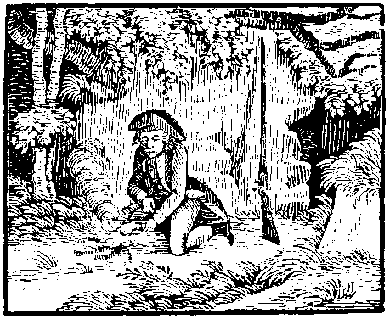Night
Inspector
Frederick Busch
(Harmony)

But then an Indian fired at him at the same time as he fired, and the bullet went up his rifle and exploded, and his face did too. So he had a pasteboard mask made up for him, with holes for eyes and mouth, painted brows and nose, and moved to New York, and traded pork bellies, and got to know Herman Melville, and a whore who could look at him without shrieking at the hamburger of his face, and who was, as all good novelistic whores must be, angelic. There was, too, Chun Ho, the lady of the Chinese laundry, who bathes him, saying nothing at all, or speaking in literary Chinese-speak, without the "a's," "an's," and "the's" --- all the while showing Oriental stoicism, what we used to call "The Oriental Clam."
Busch has found an interesting story to tell, and has studied his history so that we are not only in the smell and feel of the battlefield, but the stink and life of New York City, 1870 or so. But they are a couple of things that turn out to be overdone, flapjacks overcooked on the woodburning stove. One is the recurrent memories of his sharpshooting --- the gushing chests, the spurting arteries, and yes, the faces turning to Niagara. I am going to venture the guess that one (or at most, two) exploding faces would be quite enough indeed for any one novel. Over a dozen becomes wretched excess.
Worse, Busch's attempt to duplicate the dialogue of the time lacks something --- like, we suspect, veracity. It certainly makes us want to ring him up just tell him to cool it. This is Melville, after a trip through New York's Nighttown, the Tenderloin:
This is a brotherhood of shame," he said. "What pride can breathe in the airless coffin of this life? Except, perhaps, the pride in not dying when circumstances suggest that you must."
Or,
"It is the kind of moment life gives us when it laughs. It is the choosing without choice. A rich meagerness, that."
There are moments that almost catch one: Bartholomew's explicit description of a younger Jesse sawing through the boards of the outhouse so he can drown his hated uncle in the sludge, and then keep on pushing him down in the goopy goo with a stick: it does fascinate one in a sort of smelly, let's- But it's a rich meagerness. We would suggest that Mr. Busch is better off out of one of our favorite times --- that being late 19th Century New York. (Jack Finney did it better in Time and Again). With his next novel, when Busch decides to stick in someone like Melville, let's hope he won't tell us (for the 14th time) about his mouth, "like a cat yawning, to soundlessly laugh," or (for the 25th time) his eyes: "he seemed to me, as always, to be staring in more than out." These repetitions --- and they are everywhere --- are called tics. They can be as boring as the mask (or the tic) on your face.
The masked man, Jesse, with his all-